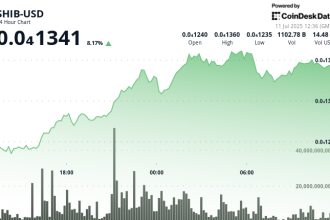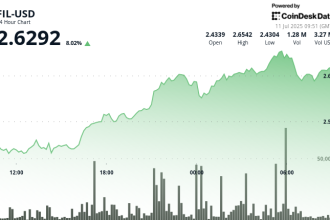Key Takeaways
-
Crypto index funds and ETFs provide diversified exposure to digital assets, enabling investors to earn passive income without actively managing portfolios.
-
These instruments come in centralized and decentralized options, with ETFs available on traditional stock exchanges and DeFi-native index tokens accessible via Web3 wallets.
-
Income sources vary by structure and may include asset appreciation, staking rewards, DeFi yields, and covered call strategies, though not all funds support every method.
-
Investors must consider risks such as market volatility, smart contract vulnerabilities, management fees, and tracking error before investing.
Crypto index funds and exchange-traded funds (ETFs) offer a passive approach to investing in digital assets, providing diversification without the need for active portfolio management. These instruments allow investors to capture market growth through broad exposure to multiple cryptocurrencies.
What Are Crypto Index Funds & ETFs?
Crypto index funds and ETFs are passive investment vehicles that track a diversified basket of cryptocurrencies. Unlike traditional mutual funds, these instruments provide exposure to digital assets without requiring individual holdings management.
Crypto index funds typically follow an underlying benchmark index composed of top cryptocurrencies by market cap. They may be:
-
Centralized: Professionally managed by brokerages or financial firms that focus on asset appreciation or income strategies.
-
Decentralized: Implemented through smart contracts on blockchain networks with potential for community governance via DAOs.
Why Use Crypto Index Funds for Passive Income?
Passive income in crypto refers to earnings from holdings without active trading or management. Key advantages include:
-
Built-in diversification across multiple coins and tokens
-
Reduced emotional decision-making during market volatility
-
Long-term wealth accumulation potential
Income Generation Methods
Crypto index funds can generate passive income through several mechanisms:
-
Asset appreciation in traditional ETFs
-
Staking rewards for proof-of-stake assets
-
DeFi yields in decentralized index funds
-
Cash distributions through covered call strategies
Landmark Market Developments
January 2024 marked a pivotal moment for crypto investing when the U.S. Securities and Exchange Commission approved 11 spot Bitcoin ETFs. Major financial institutions including BlackRock, Grayscale, and ARK Invest entered the space, providing institutional-grade access to digital assets for the first time.
Notable Crypto Index Products (2025)
Prominent Crypto Index Funds
-
Bitwise 10 (BITW): Provides exposure to top 10 cryptocurrencies, rebalanced monthly through traditional brokerage channels.
-
TokenSets: Offers decentralized index products including the DeFi Pulse Index (DPI) and Metaverse Index (MVI), enabling yield generation through staking and DeFi protocols.
-
Nasdaq Crypto Index: Tracks leading digital assets with significant Bitcoin weighting, available through traditional financial platforms.
Leading Crypto ETFs
-
ProShares Bitcoin Strategy ETF (BITO): First Bitcoin futures ETF approved in the U.S., offering regulated access through traditional brokerage accounts.
-
Purpose Bitcoin Yield ETF (BTCY): Canadian-listed fund that combines Bitcoin exposure with covered call strategy for monthly income distributions.
-
Harvest Bitcoin and Ethereum Enhanced Income ETF: Focuses on generating regular income from BTC and ETH through covered call strategies.
Investment Process
Access to crypto index funds and ETFs varies by product type:
-
Centralized platforms: Available through traditional stockbrokers and crypto exchanges
-
Decentralized platforms: Accessible via Web3 wallets on platforms like Index Coop and TokenSets
Risk Considerations
While crypto index funds offer passive income potential, investors face several risks:
-
Market volatility and potential for significant drawdowns
-
Smart contract vulnerabilities in decentralized products
-
Management and expense fees that impact overall returns
-
Tracking error between fund performance and underlying benchmark
Taxation Considerations
Tax treatment varies by jurisdiction and fund structure:
-
Traditional ETFs are generally taxed on capital gains
-
DeFi index tokens may generate additional taxable events
-
Staking rewards are typically taxed as income
Is Passive Crypto Investing Right For You?
For investors seeking exposure to cryptocurrencies with less management burden, index funds and ETFs offer an increasingly sophisticated option. These instruments combine diversification with various yield potential, making them suitable for different risk profiles and investment objectives.
This article does not contain investment advice or recommendations. Every investment and trading move involves risk, and readers should conduct their own research when making decisions.












